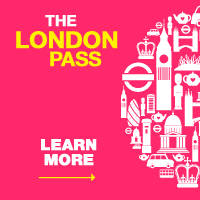
Pounds and Pennies
Buying and paying for things in Britain
About-Britain.com
- a thematic guide to Britain
- Site index
- Essential
information
- Accidents and emergencies
- Pounds and pennies
- Hotel search
- Budget tourism - Britain on the cheap
- Online shopping from the UK
- Driving in Britain
- Low-cost car-hire
- Travel by train in Britain
- Visitor accommodation
- Hotels in London
- Britain's main attractions
- Food and eating in Britain
- Christmas in Britain
- English pubs
- Places
to visit
- Britain's main attractions
- Visiting London
- London for free
- Getting round in London
- Shopping in London
- More great English cities
- Oxford and Cambridge
- Tourism by region
- Best places to visit in southeast England
- Best places to visit in central southern England
- The West of England - Gloucestershire to Dorset
- The southwest - Devon and Cornwall
- Sites & heritage in the East of England
- About Scotland
- Attractions by theme
- Issues & institutions
En
español. Libras
y peniques
Using
British currency, how to pay for things, and other tips
| On
this page |
Pounds and pence | Paying for things | Getting your pounds |
Pounds and pence - the British currency
Throughout the United Kingdom - though not in the Republic of Ireland - the currency used is the Pound, or Pound Sterling. The bank reference for this currency is GBP.One pound is divided into 100 pennies, or pence. To specify sums of money, pence is the normal plural form of the word penny.
In 2024, one pound is worth more than one Euro and more than one US dollar.
After the Brexit referendum result, the pound fell in value by 20% against world currencies, meaning that Britain got quite a bit cheaper for foreign visitors. Since then it has risen again; but there is still uncertainty over what Brexit will bring, and the British currency could go up in value, or could go down. The value of the pound will remain volatile and fluctuate as international currency speculators push its value up and down.
Here are the conversion rates as of early 2024 for major world currencies.
| January 2024 conversion rates : One British pound = | ||
| 1.14 Euros | 1.31 US dollars | 1.7 Canadian dollars |
| 1.9 Australian dollars | 144 Japanese yen | 9 Chinese yuan |
In other words, for example, an item costing £100 in England costs the equivalent of 117 €uros, 131 US dollars, 170 Canadian dollars, 900 Chinese yuan, etc.
Coins are used for units up to the value of £2. Banknotes start at £5.
Sums are expressed in different ways by different speakers. For example, the sum of £24.99 may be expressed as "Twenty-four ninety-nine", or "Twenty-four pounds ninety-nine", or even "Twenty-four pounds and ninety-nine pence".
Sums below one pound may be expressed, for example, as "Forty-five pence" or "Forty-five pee", but never as "forty-five pennies". The word "pennies" is not used in sums or transactions; only in generic expressions such as "pounds and pennies".
The word "quid" is slang for "pound(s)", as in "That'll be fifty quid please".
The word "a grand" is slang for a thousand pounds.
Buying online
Many UK shops offer online sales, with (often free) delivery to Europe or even worldwide. Some have prices in Euros or dollars, others in sterling. For a selection of the best shops, see Online British shopsPaying for things
Hotels
in Britain at the best rates
from Booking.com
By far the easiest way to pay for things in Britain - in shops,
restaurants and hotels, is by "plastic" or using a mobile payment app
such as Applepay, Googlepay or Samsungpay. Mobile payment apps and
international credit or debit
cards, notably Visa
and
Mastercard,
can be used all over Britain. Many outlets and ATMs also accept
American Express and
other international cards. For smaller amounts, most shops and traders
are now equipped with contactless card readers, which can be used
without the need to enter your PIN number, below a certain sum.
from Booking.com
- A selection of budget hotels in Britain
- Large choice of two-star hotels in Britain
- Large choice of three-star hotels in Britain
- Large choice of 4 star hotels in Britain
It also makes good sense to make large purchases, such as booking hotels and hiring cars, before you travel. To start with you can do this in the familiar surroundings of your own home or office, on a computer or laptop rather than on a phone, which usually makes processes easier. Secondly you'll then have less to bother about once you're in the UK.
Paying in cash
However, there are always a few places - not many - that do not accept plastic cards - for instance small shops, small restaurants, market stalls, old parking meters, and so on, so visitors to Britain will need to have some pounds and pennies available.It is however now quite possible to spend a week or two in Britain as a tourist, without ever needing to use cash.
It is not usually possible to pay for things in cash in Britain using dollars or euros. It is normally essential to have pounds and pennies. However in London, some of the big department stores, such as Marks and Spencer or Selfridges, accept payment in Euros and/or dollars. But the exchange rate is liable to be unfavourable. It would be far better to withdraw pounds from an ATM (cash machine, cash distributor, cashpoint) and pay in sterling, rather than to try and pay with a different currency.
Exchange: getting your pounds
Credit or debit cards and ATMs
The easiest way to get your British pounds, and often the cheapest way, is to use your Visa or Mastercard in a British ATM, just as you would at home. But before you come to the UK, make sure that you tell your bank at home that you are going to the UK, and ask them to set your maximum withdrawal level as you will need it. Many banks have security systems that will stop a card being used, abnormally, in an unusual location; so if your card is suddenly used for withdrawing money in the UK, your bank's computer system may imagine that this is a fraud, and block your card. This can be extremely problematic for visitors in a foreign country.Exchange fees and commissions
Your bank will normally charge you a small fee for using your card abroad, and a small foreign exchange fee. So it does not make a lot of sense to use your card for a lot of small purchases or withdrawals, on which you will pay a lot of exchange fees; far better normally to withdraw a useful amount of cash (1 withdrawal = 1 fee), and pay for small purchases in cash.Warning: many bank-operated ATMs in the UK will not charge you for use; however, there are a lot of ATMs in non-bank locations (garages, train stations, motorway service areas, etc.) which are not bank ATMs, but are run by private finance companies. These can, and usually do, charge an extra fee for using their machine, in addition to those that your own bank will charge. The fees can sometimes be quite high.
Other means of obtaining your Pounds
If you do not want to, or cannot, use a credit card or debit card while visiting Britain, you must make other arrangements. The best method is to get Sterling (GBP) from your bank before leaving home. You can either get cash or sterling-denominated travellers cheques. Your own bank may well offer you a better exchange rate than other places.You can also buy British pounds in exchange for foreign banknotes in many banks in the UK; however, even if the UK is a relatively safe country, it is not advisable for tourists to go round with hundreds of pounds worth of cash in banknotes, on their person.
Do not find yourself having to exchange money at a "bureau de change" or foreign exchange kiosk in at an airport, ferry terminal, or other location. Privately operated currency-exchange kiosks often take considerable commissions, even when, as often, they announce "We take no commission".
Don't fall for that one. They may take no "commission" in the sense that they don't take any further fee off the sum in Sterling once they have converted it for you. On the other hand, they may use a hugely unfavourable exchange rate, well below that offered by reputable banks. So even with "no commission", they don't give you a good rate for your exchange transaction. It's easy to lose up to 10% when converting money, especially if you convert small sums.
Travellers cheques
These are no longer much used, as they have been largely made redundant by the use of credit and debit cards, and the availability of cash dispensers (ATMs). However they still exist, and can be cashed in major banks in the UK, though are little use elsewhere. It's maybe useful to have some for use in an emergency if all your credit cards should stop working, or reach their limit.Wire services.
It is often possible to have money wired to you while in the UK, using the services of companies such as Western Union or Moneygram - even Paypal.Western Union has agents in most UK towns and cities, in a variety of types of establishment including travel agencies, newsagents, grocery stores, financial services agents, and other outlets, but not usually banks.
Moneygram tends to use more institutional agents, notably Post offices and big travel agencies.

Prices in pounds... only.
For comparison
Buying and paying in the USA

Online shopping
from the UK...
?
Which top UK stores
offer free
delivery to Europe and bargain pricesVisit
London's main paid-entry attractions and avoid
the queues, with a London
Pass. Click for more details


Photo top of page from an original by Bluebudgie
